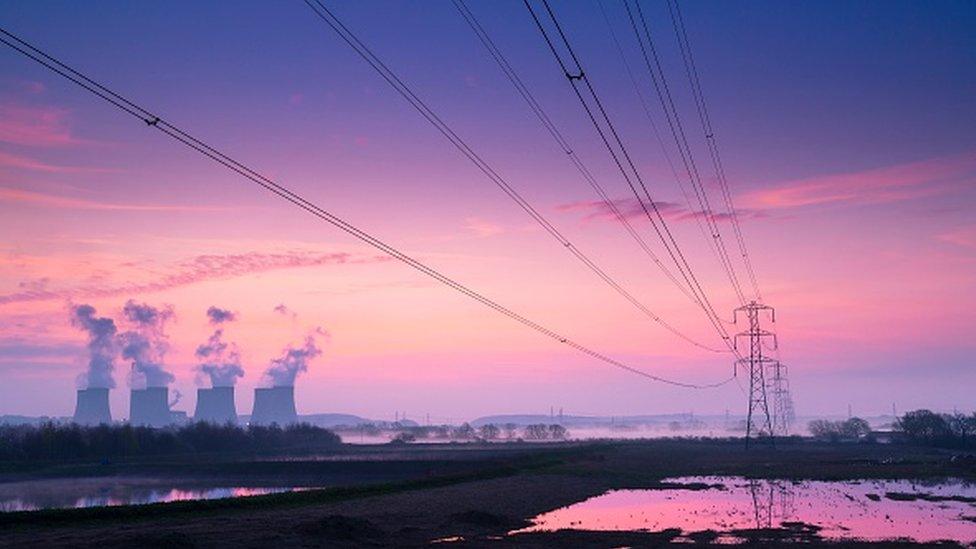Does Theresa May's energy cap fit?
- Published

Theresa May has decided that an energy cap fits her political purpose and has confirmed she will wear it into this election campaign.
It's a striking departure for a Conservative Party that branded Ed Miliband's attempt to intervene in the energy markets in 2013 a "dangerous idea".
It may have been dangerous then but it's an idea whose time has come for a PM who declared herself "fed up with rip-off pricing" in a piece for today's Sun Newspaper.
It's a significant step given competition authorities looked at this issue for two years and decided that it wasn't necessary or desirable.
Bad idea?
This is the same authority which looked at competition available to customers with pre-payment meters and decided a cap was necessary there.
In other words, it was not totally ideologically opposed to caps where competition isn't working but it considered a cap on standard tariffs a bad idea.
It said a cap would "run excessive risks of undermining the competitive process, [probably] resulting in worse outcomes for customers in the long run". Pretty clear.
The boss of the biggest of the six energy suppliers, Centrica's Iain Conn, has warned that a reduction in competition and investment are among the possible unintended consequences of a cap.
Even consumer groups are worried that consumers will become less bothered trying to find a good deal if they think the government is doing it for them.
But Stephen Fitzpatrick, the chief executive of smaller supplier Ovo Energy, described the policy as a "bold and ambitious move" - and argued that a cap would not harm consumers or competition but rather offer customers a safety net to protect them from overcharging.
The owners of the big energy companies have taken fright and billions have been wiped off their share prices.
Stocks dive
Shares in Centrica have fallen 15% since the start of this year and some are speculating that it may cut its dividend to shareholders to cope with an estimated £200 million hit to profits from the cap.
Speaking this morning to the BBC, Business Secretary Greg Clark said the companies should look at ways to become more efficient. That usually means job cuts.
The energy companies can't say they weren't warned. Even before Theresa May became Prime Minister, she told the Conservative Party conference she was prepared to intervene in dysfunctional markets. There were no prizes for guessing which markets she meant.
Nevertheless it's a new direction for her party and I'm told senior ministers were split over its wisdom.
It is the most significant policy to date in Theresa May's attempt to rebrand the Conservatives as the party of the worker and consumer rather than big business and its bosses.